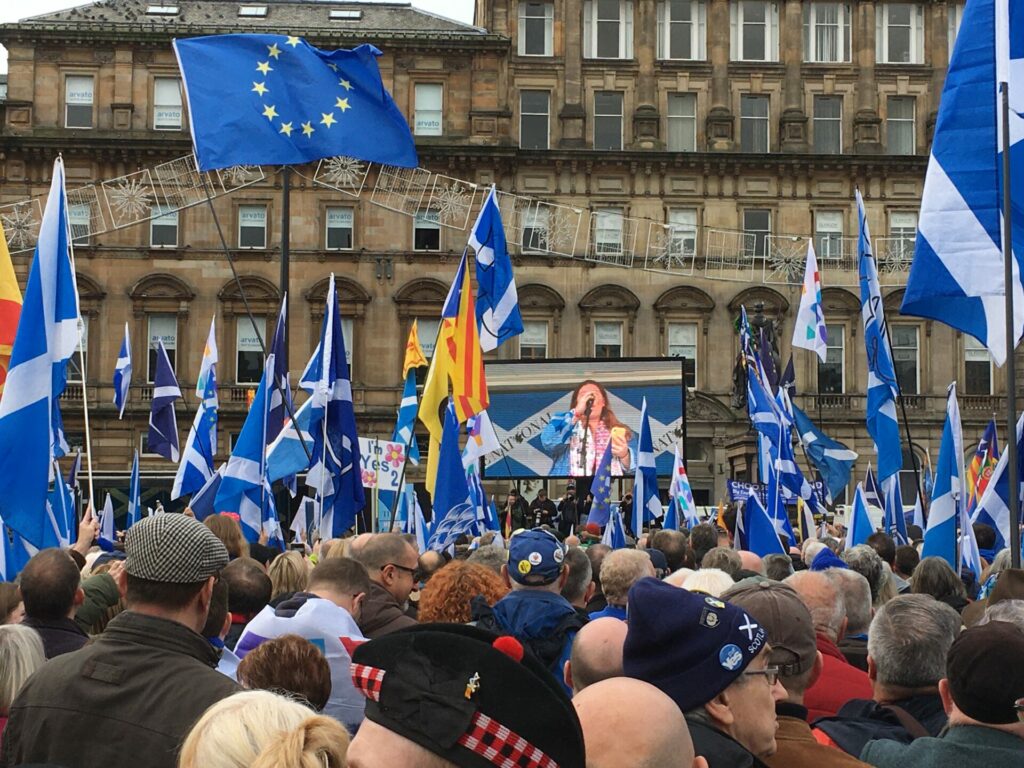The UK Supreme Court has produced a historic ruling stating that Scotland cannot hold another independence referendum without the consent of the UK Parliament in London.
After years of speculation, the UK Supreme Court ruling has greatly dented the independence campaign in Scotland. On Wednesday morning, Supreme Court judges gave a unanimous ruling that the Scottish Government does not have the power to legislate and hold a second referendum without the consent of Westminster.
If it had been approved, it would have been the second time that Scots would have voted on the issue of independence from the UK in less than ten years – with the last vote having been held in 2014.
While the ruling constitutes a blow for Nicola Sturgeon, Scotland’s First Minister, the leader has previously vowed to fight the next general election as a "de-facto referendum." The Scottish National Party (SNP) leader reacted on social media with strong words, arguing “Scottish democracy will not be denied.”
She added that, while she respected the ruling, she believed it demonstrated the power of London over the United Kingdom. "A law that doesn't allow Scotland to choose our own future without Westminster consent exposes as myth any notion of the UK as a voluntary partnership & makes case for Independence."
During the trial, the UK Government’s legal representative argued that the Bill "squarely and directly" related to "a matter reserved to Westminster – the union between Scotland and England" – a political union which goes back to 1707.
This theory was avowed by the Court, clearly stating "the Scottish Parliament does not have the power to legislate for a referendum on Scottish independence."
Second referendum in ten years
Nicola Sturgeon has argued that the success of the SNP in general elections, as well as the UK’s exit from the EU, gives Scotland a mandate to become independent.
Sturgeon has been a strong voice against the UK's exit from the EU, and seeks to rejoin the bloc as an independent country. The question of independence came to the fore once again after the Brexit vote in 2016, as Scotland voted to remain part of the EU, as did Northern Ireland, while England and Wales voted to leave.
Many pro-independence Scots have argued that, in the context of the EU vote, Scotland being taken out of the EU against its own will constituted a nullification of the 2014 independence vote.
Sturgeon began her campaign for a second vote in 2017, which was dubbed indyref2. The move was refused by the Prime Minister at the time, Theresa May, and all subsequent UK leaders – which led to today’s Supreme Court ruling.

Scottish Independence Rally, George Square, Glasgow. Credit: Bob Shand / Flickr / Creative Commons
In 2014, Scotland voted in a referendum to remain part of the United Kingdom with 55% opting for the ‘No’ campaign when asked the question “Should Scotland be an independent country?” While 45% of Scots voted for independence, calls for self-determination in Scotland have not disappeared, further spurred on by the success of the SNP in Westminster elections since 2007.
The SNP’s dominance in Scotland can be explained by a sentiment in Scotland that the Westminster parliament does not adequately represent the interests of Scotland.
Related News
- Scottish independence referendum: Supreme Court hearing in October
- Scotland hopes to rejoin the EU as an independent nation
- Belgium to Scotland ferry link likely to return next year
This feeling of a lack of representation is reflected in voting patterns in general elections. Many people vote for the SNP to fight for Scottish interests in London – even if they are against independence. For example, Scots have consistently voted against the Conservative Party, yet have been ruled by consecutive Tory governments since 2010.
Today's Supreme Court ruling has greatly dented that route for Scottish independence, but other routes remain. In her statement, Sturgeon vowed to continue the campaign. “Today’s ruling blocks one route to Scotland’s voice being heard on independence - but in a democracy, our voice cannot and will not be silenced.”

